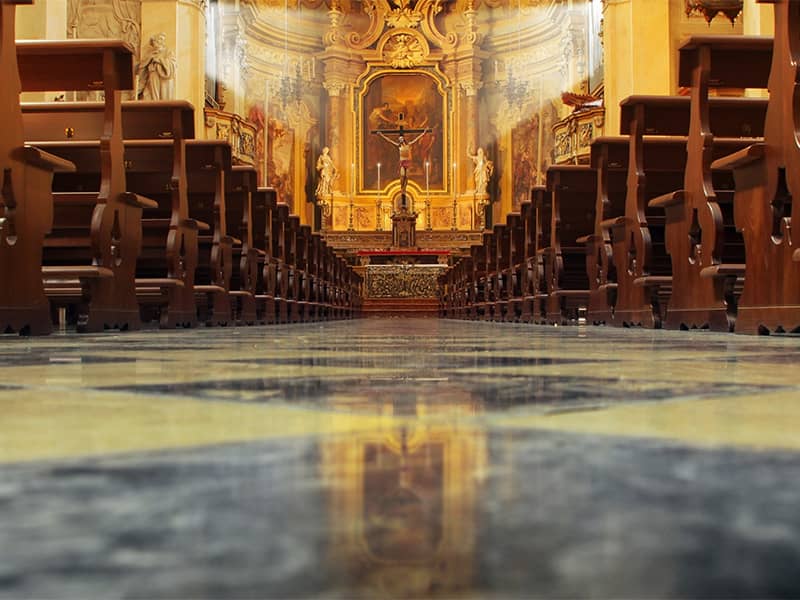Yet in the end, it was Jerusalem over which the Israel-Palestinian peace talks broke apart following more than two weeks of searching for a formula both sides could agree to--and sell to their respective constituencies.
Is it any surprise?
Jerusalem exists on at least two levels--the present and the past--that Yasser Arafat, Ehud Barak, and Bill Clinton were unable to decouple and overcome. Even as its landscape becomes increasingly dominated by modern skyscrapers, Jerusalem's soul remains its stone churches, mosques, and synagogues--ethnic and religious touchstones that say, this shrine, this territory, is ours--no matter what others may say.
It's one thing for Clinton, who has little more than his presidential pride at stake in Jerusalem to say "share sovereignty and use." It's quite another if you are a Christian or Muslim Palestinian, or an Israeli Jew--religious or not--to willingly turn land or psychic space that defines your sense of identity, faith, and history to those you see as the enemy.
If you are a Christian Palestinian who has lived for generations in Jerusalem, how do you accept Jewish Israeli soldiers having the final say over what transpires on the Via Dolorosa?
If you are a Muslim Palestinian, how galling must it be to be told that your access to the jumah prayer at al-Aqsa mosque has been terminated this Friday because Israelis are nervous about potential terrorism?
If you are an Israeli Jew, for whom Jerusalem has been a national and religious dream for 2,000 years, how anguishing must it be to hear you should surrender half the city--including the Old City's Jewish Quarter, the very epicenter of the Jewish past--because the pope, the Muslim world--even the United States--the best friend Israel has ever had--say that's just the way it has to be if you want peace?
In reality, Jerusalem is already a divided city. Parts are Jewish, parts are Arab. Few Israelis dare venture into the Palestinian sectors out of fear of assault. Few Palestinians venture into the Jewish neighborhoods except to work as day laborers who must leave come sundown or be subject to police harassment.
In the narrow alleys of the Old City, Jerusalemites speak of a state of mind--mindlessness might be a better word--they refer to as "Jerusalem syndrome."
Here's how it works. An outsider, say a young American backpacker, arrives in the city and is overwhelmed by the palpable intensity of its religious and political energy. Before long, he has decided he is Jesus and must live like an Essene, or a fervently religious Jew who must pick up a rifle and move to a West Bank trailer community, or that he is a Muslim fundamentalist who must rid al-Quds, "the Holy," the Arabic name for Jerusalem, of infidels through violent jihad. It is a common loss of perspective.
Yet in a very real sense, much of the world suffers from Jerusalem syndrome. Certainly it plays a role in the psyches of the elite of Israeli and Palestinian society who came to Camp David to bargain hard over every one of the city's pink-hued stones. It shows in the passions of those in the Arab and Muslim worlds, at the Vatican, and in the Jewish right wing who insisted that neither Arafat or Barak had the right to bargain away any part of the city where, Scripture and tradition insist, Abraham came to sacrifice Isaac, David established his kingdom, Solomon built the great Temple, Jesus was crucified, and Muhammad launched his journey to heaven.
Israeli poet laureate Yehuda Amichai was quoted in Tuesday's Jerusalem Post telling the following story about how once he sat for a moment near the Jaffa Gate entrance to Jerusalem's Old City with his two baskets of purchases. A group of tourists ambled up and their guide instructed them to note the man with the baskets because he was sitting near a Roman-era arch. At that moment, Amichai said, the problem of Jerusalem--its burden of history and theology--was made crystal clear to him. If only, added Amichai, the guide had felt it more important to say, see that man who today purchased fruit and vegetables for his family, he's sitting by a Roman-era arch.
In the end at Camp David, the significance of arches and stones and faith and identity meant more than fruit and vegetables and the lives of those who may die tomorrow fighting for inherited beliefs. And many will say that is how it must be, that is what God wants.

